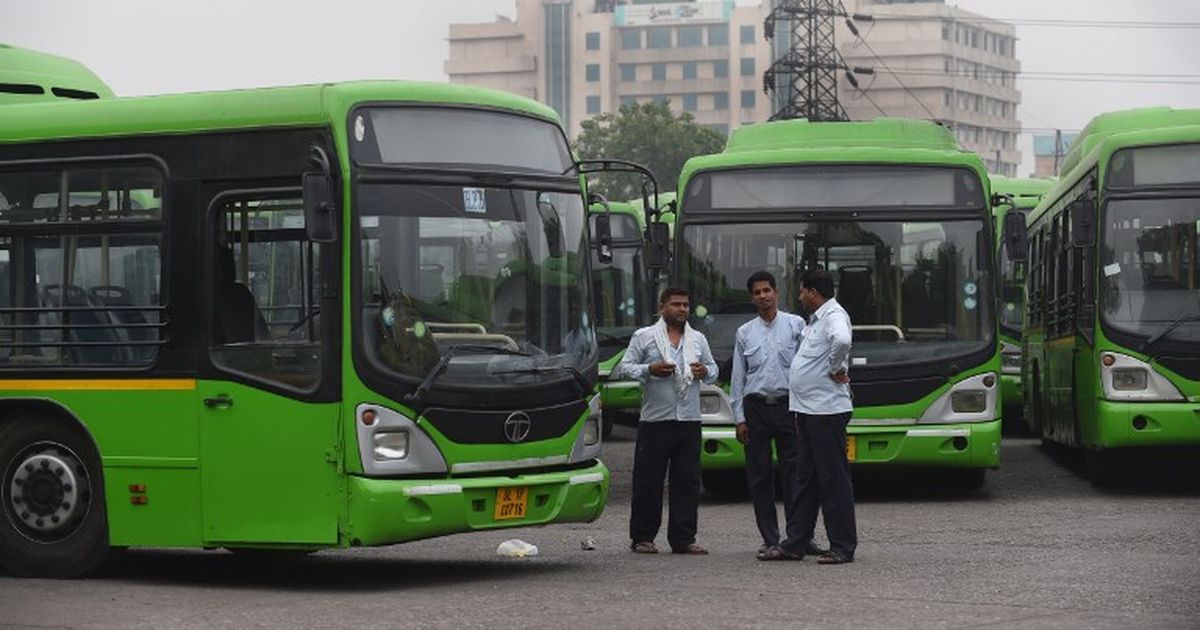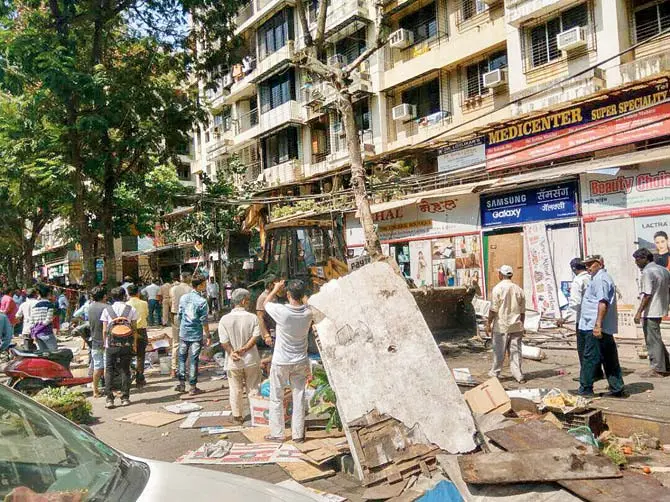The well-intentioned declaration by Delhi’s Chief Minister, Arvind Kejriwal, concerning complimentary public bus transportation for the trans community, has sparked a maelstrom of reactions. While the proposition appears progressive on the surface, a deeper examination unveils a yawning chasm between rhetoric and harsh reality, exposing the government’s lack of understanding and unpreparedness in addressing the formidable challenges confronted by the capital’s transgender residents.
The policy’s restrictive eligibility criteria, mandating possession of a transgender certificate, lays bare the cavernous gap between performative welfare politics and driving substantive change for India’s ostracised transgender minority. As elections loom on the horizon, the all-too-familiar pattern of exploiting disabled rights for electoral mileage continues unabated, transcending ideological boundaries.
Selma*, a 24-year-old trans woman, has been thwarted in her quest to procure her transgender certificate from the Department of Social Justice and Empowerment despite four attempts spanning two years. Constant rejection of applications due to discrepancies like the inability to obtain medical records or mismatching documents, meeting rigid requirements around gender transition proof, navigating complex bureaucratic labyrinths, and dealing with prejudice or lack of understanding from administrators have debilitated her from accessing fundamental legal rights and services linked to the ID card.
‘If free bus rides become linked to this certificate, a large number of transgender people will be excluded,’ Selma bemoans. ‘What we need is a straightforward affidavit-based system instead.’
Anjum*, who endured an arduous 18-month odyssey before finally procuring her transgender certificate, unveils how the system remains meticulously designed to be discriminatory. Officials’ expectations of quotas, randomly admitting applications, and inconsistent document requirements all compound the hardship faced by vulnerable applicants.
‘Countless individuals from marginalised communities struggle to navigate through a bureaucratic system designed to deny rights to minorities,’ Anjali expresses with frustration. ‘Without addressing the root cause of this systemic disempowerment, welfare programs downstream lose their significance.’
Sonam*, a trans woman, echoes the harrowing sentiment, ‘The affidavit demands a fee ranging from Rs 200 to Rs 400, along with address, identity, and gender reassignment surgery documentation for those seeking recognition as either male or female. Following this, a verification procedure involves officials visiting your residence, confirming your address, and questioning neighbours about your residency duration. I question whether many transgender individuals can afford the affidavit costs and whether they have disclosed their identity to family or neighbours to undergo the verification process.’
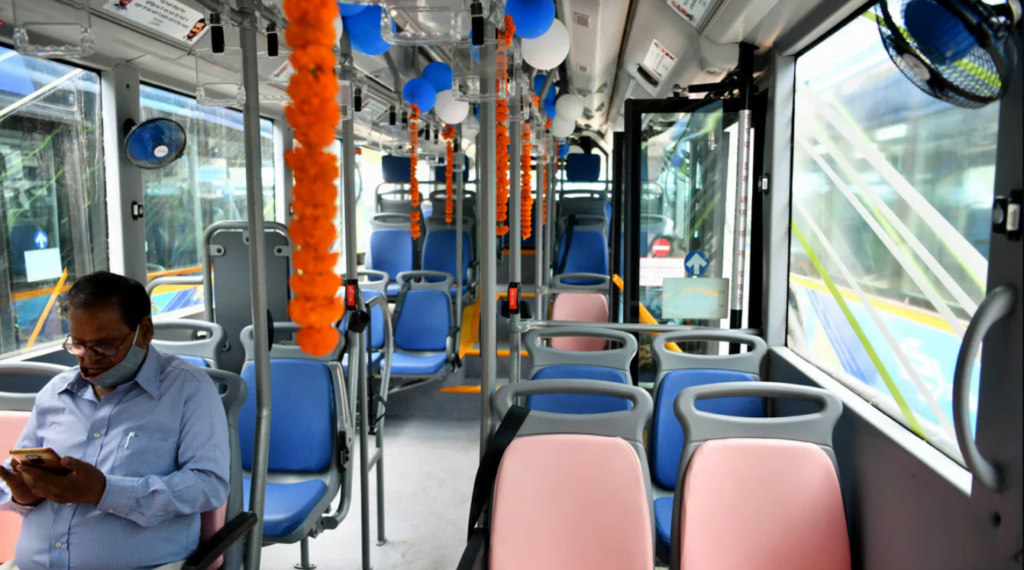
Compounding the bureaucratic obstacles is the digital divide that further marginalises the transgender community. A recent UN Women report, citing a study by the Centre for Internet and Society, reveals that digital literacy – the ability to navigate the internet, utilise online platforms, and access websites – stands at a mere 15 per cent among the transgender community, erecting a formidable barrier to accessing the very systems designed to grant them legal recognition and, subsequently, access to essential rights and services.
While the Aam Aadmi Party has garnered acclaim for announcing the progressive policy, many have censured its paradoxical eligibility barrier. Sonali alleges that the party proclaimed the scheme for political mileage before elections, without any genuine intent for meaningful impact.
Vikrant*, a 28-year-old trans man who underwent gender affirmation in 2020, echoes this cynical sentiment. Despite expending his life savings on transitioning, Vikram still does not possess an ID recognising his male gender. ‘The plan has no tangible benefit if transgender certificates remain so inaccessible to the common masses who are not privileged enough to have access to the tools to get it sanctioned,’ he adds.
Other states have implemented similar initiatives with varying degrees of success, illuminating potential paths forward. The Mahalakshmi free bus ride scheme, launched by the Congress government in Telangana, has emerged as a beacon of financial relief for women and transgender persons across the State, collectively saving them ₹1,177 crore in just four months (till April 7), according to official sources. The initiative seems to have revolutionised commuting for women, paving the way for substantial economic empowerment.
Under the Mahalakshmi scheme, girls, women and transgender persons of all ages, who are domiciled in Telangana, can travel for free on TSRTC buses. Launched in December 2023, the scheme led to an exponential rise in patronage, with an initial surge of approximately 14 lakh women availing of the complimentary travel facility daily, steadily increasing to an impressive average of 29.67 lakh women commuting daily by bus by March.
In Hyderabad alone, approximately six lakh women commute daily under the scheme, previously incurring expenses of up to ₹1,500 on bus passes and fares. Women, girls and transgender persons are allowed to travel for free anywhere within Telangana’s borders on City Ordinary, Metro Express, Palle Velugu and Express buses, underscoring the scheme’s widespread impact.
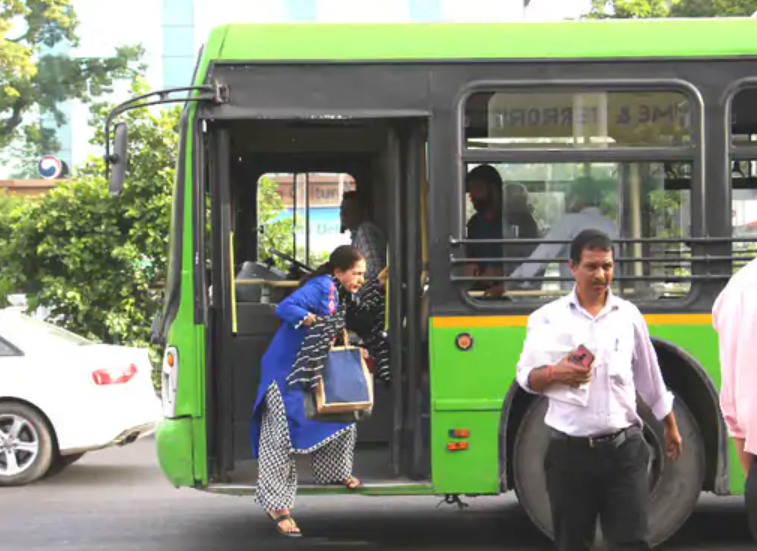
With the vast majority of potential beneficiaries excluded from availing of the service, activists question its legitimacy as a “free” scheme.
This also brings the conversation to those who pass as a privilege in the trans community. Kunti*, a trans woman aged 22 in Delhi, tells about her experience with DTC buses and how her being able to “pass” as a cis-woman helps her in certain ways. ‘Bus conductors don’t even ask me and just hand me the pink ticket as soon as he sees my appearance. Long hair, dress and jhumkas somehow seem to code them into thinking of a woman. For the first, stigma and notions help.’
‘It’s not just me and many of my trans sisters who can “pass” due to privileges, hormones reacting better, and many more reasons can avail the facilities of seats and reservations and free bus rides due to the same. The policy thus won’t affect much.’ Kunti continues.
This raises the discussion around who the policy intends to help then if a large section can access it even now. The idea that the West finds it so hard to digest, which is about trans women being women, seems to be followed in practice here, as ironic as it is. Kunti’s revelation and experience bring to light that policies need to be more gender inclusive, broadening the idea of the term ‘women,’ itself when it comes to it rather than introducing a new section of the policy itself. In inclusivity lies the solution to the flaws of this new proposed policy.
Amidst the criticism, a government official who identifies herself as a trans woman offers a perspective that cannot be disregarded. ‘The transgender certificate serves as more than just an ID; it’s enrollment in official government records,’ they explain. ‘While you exist as a person, accessing benefits meant for specific communities requires proving legal eligibility.’
The authority further draws parallels with other communities, noting, ‘It’s important to note that caste certificates are also necessary to access government scheme benefits,’ they highlight. ‘Even when applying for government jobs, providing a domicile certificate is mandatory.’
However, the crux of the issue lies in the government’s dearth of understanding and preparedness. According to Kunti, ‘The government avoids discussing the topic because they’re unsure themselves. It’s a significant policy, but no one fully grasps its impact or how to tackle its flaws.’
The Delhi government’s failure to create public awareness about trans IDs or educate the district magistrates on the process further compounds the problem. On February 5, the Delhi transport minister informed the media that the transgender certificate would be mandatory. However, according to official census data, there are only around 15,000 transgender residents in Delhi.
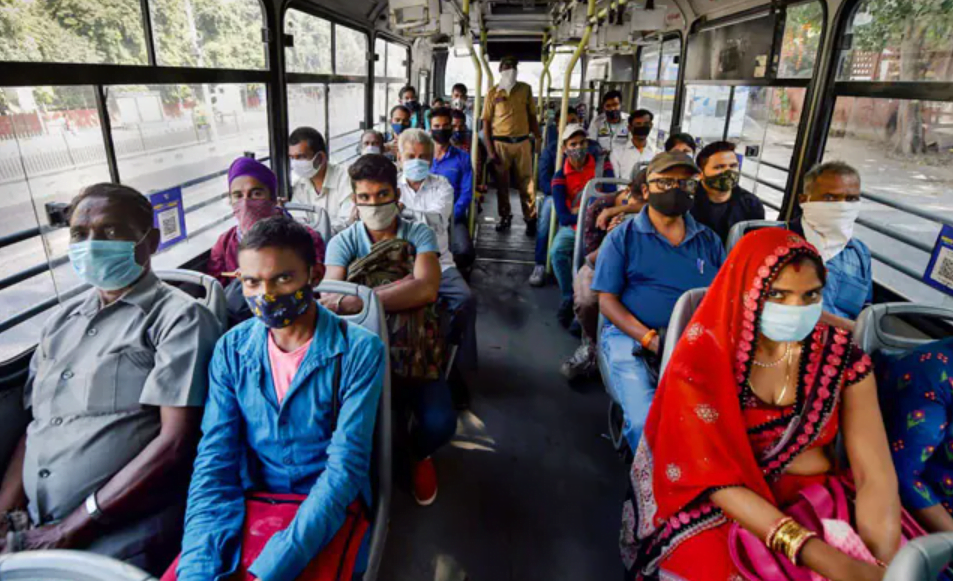
However, activists estimate that the actual transgender population is much higher, likely in the lakhs. As per data available with the National Portal for Transgender Persons, only 343 trans persons in Delhi currently possess the mandated transgender certificates, and 47 per cent of the applications for certificates are pending in limbo.
Adding to the confusion, many transgender individuals themselves are unaware of the existence of transgender certificates, let alone the complex process to obtain them, highlighting the pervasive lack of awareness among the community.
As the cacophony of voices swirls, one truth emerges: true empowerment necessitates genuine representation, access, and equity – not PR publicity stunts that further marginalise the already marginalised. Policymakers must walk the talk by placing the rights, welfare, and autonomy of suppressed minorities before privileged institutions, and community members implore.
To achieve this, governments must reform the flawed processes that deter transgender individuals from obtaining legal identification and documentation. And, only through collective action, unwavering determination, and a commitment to dismantling systemic barriers can the transgender community in Delhi, and across India, truly claim their rightful place as equal citizens, unshackled from the bonds of discrimination and marginalisation.
As Kunti poignantly states, ‘I guess in this situation, it is incumbent upon us queers to steer the mass registration movement of trans folks in our region.’
* names have been changed to maintain confidentiality.
About the author(s)
Fat, neuro-diverse, and queer are the foremost words Sahil uses to describe themselves. A full-time undergraduate student of Economics at the University of Delhi, Sahil is a Laadli Media awardee of 2023. They are also a recipient of the Reliance Undergraduate Scholar for 2023 and various prestigious fellowships including Global Citizen Year Academy '22 and Civics Unplugged (Civics Innovator Fellowship ’22). Sahil regularly writes for Thred Media, and also for Youth Ki Awaaz as an alumnus of the Justice-Makers WTP ’22.
Sahil is part of UNICEF India's YuWaah Young People's Action Team (YPAT) 2023 and the YLAC Ambassador for Delhi.
